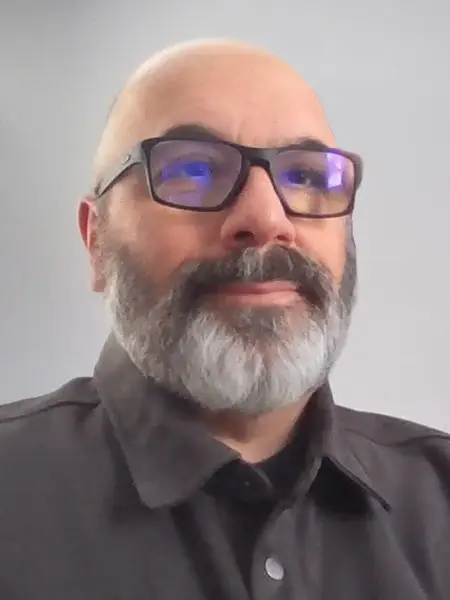
Jean-Louis Dassier
For Jean-Louis Dassier, teaching foreign languages is about more than grammar and vocabulary—it’s about transformation. At IUP, he creates spaces where students can take risks, discover new ways of thinking, and find their voice in another language. His classes weave together technology, culture, and identity, making every day dynamic and interdisciplinary.
Dassier believes language learning is relational and profoundly human, and he encourages students to embrace curiosity, discomfort, and connection as part of their college journey. Whether guiding reflective learners or cheering their first conversation in a new language, Dassier sees each moment as an opportunity for growth.
What is it about the foreign language field that initially drew you in—and ultimately keeps you interested?
It’s the deeply personal journey each learner experiences through language. Students aren’t memorizing grammar or vocabulary (who cares?); they’re discovering new ways of thinking and finding their voice in another language. That transformation is powerful. Every student brings different motivations and learning styles, so no two classes are ever the same. I love that this field sits at the intersection of so many disciplines. One day I’m exploring AI-powered learning platforms such as Gliglish, another I’m thinking about how social identity shapes language acquisition, and another I’m weaving in anthropological insights to make culture come alive. The diversity of perspectives and the dynamism of the classroom keep the work perpetually fresh.
Why do you enjoy teaching in this discipline?
Language teaching is profoundly human. It’s about creating safe spaces where students can be vulnerable, take risks, and make mistakes as they learn to communicate. There’s nothing more rewarding than seeing the pride on a student’s face after their first real conversation or when they wrote their first piece in a new language.
I also enjoy guiding students to become reflective learners—helping them understand how they learn, what strategies work for them, and how to monitor their own progress. Language learning is relational and transformative, and that means every class can be a space of meaningful growth for all of us.
What advice would you give students about how to succeed in college?
Be curious. Don’t be afraid to take classes outside your major—insights from Food and Nutrition, French, or Psychology might surprise you with their relevance. Be willing to feel uncomfortable; that’s often where the deepest learning happens. Build real relationships—with professors (yes . . . even with PROFESSORS), classmates, and staff. College, like language learning, is relational.
The connections you make can shape both your academic path and your future opportunities. Most of all, embrace the idea that learning is not just about acquiring knowledge, but about becoming the kind of thinker, citizen, and person you want to be.
Tell us something most of your students may not know about you.
I love reading in both French and English. Some favorite books include Desert Solitaire, by Edward Abbey (born in Indiana, PA), Stoner, by John Williams (for the university professor I have become), La Gloire de mon père, by Marcel Pagnol (for the little Provençal boy I used to be), and Cyrano de Bergerac, by Edmond Rostand (for the raw power of French poetry).
I’m also a huge Ohio State football and Steelers fan. And sometimes, my favorite way to unwind is helping friends with home improvement projects—painting walls, installing flooring, or tiling backsplashes.